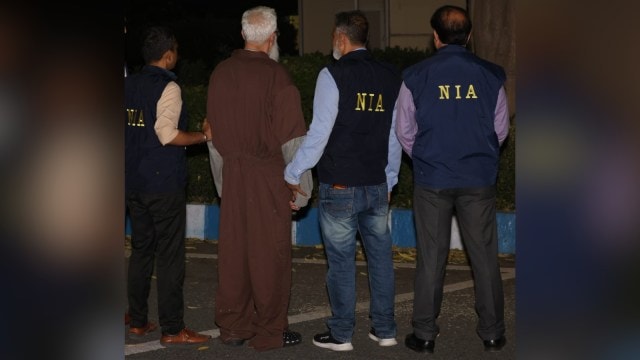
Last week, this column focused on the anxiety across Pakistan after US President Donald Trump slapped a 29 per cent tariff on exporters as part of his “Liberation Day” agenda. This week, too, the dominant discourse within Pakistani and Bangladeshi media is the Trump tariff regime, especially after he rolled back the supplementary tariffs on all countries except China.
But there is a lot more happening in India and the neighbourhood. For example, the Waqf (Amendment) Bill 2025 was passed in Parliament a few days ago, and India has terminated the transshipment facility for Bangladesh’s export cargo in what is a backsliding of ties just a few days after both heads of state appeared to have a constructive meeting on the sidelines of the BIMSTEC summit.
While the Waqf Bill has been extensively criticised across Pakistani media, finding space in the Editorial and Opinion pages of almost every major newspaper, there has been a conspicuous silence on the extradition of Tahawwur Hussain Rana, a key conspirator of the 26/11 terrorist attacks in Mumbai. Barring a few reports by Dawn, there is no mention, let alone an editorial, of Rana on any of the other major news websites like The Nation, the Daily Times and the Express Tribune.
“Land grab, undermining Muslim autonomy”: Waqf Bill in Pakistani media
The Nation, in its April 4 editorial, explains how waqf boards play a crucial role in overseeing Muslim affairs, ensuring that wealth is preserved and fairly distributed within the community, and for the BJP government, “this limited self-governance is intolerable”. It further argues, “the same government that claims administrative necessity in altering waqf board structures has openly supported — or at the very least, turned a blind eye to — vigilante groups that target Muslim communities with impunity.”
In its April 5 editorial, The Express Tribune acknowledges that it “is undeniable that corruption within these boards must be addressed”. At the same time, it argues that much of the language of the new law means that the institutional changes could “well be abused by bad actors”. It also highlights the inclusion of non-Muslims in administrative roles: “…a significant shift from the traditional governance structures… seems less about improving management and more about undermining the autonomy of the Muslim community.”
Dawn, in its editorial dated April 5, accuses the BJP of “legalising land grab” and theorises that its purpose is to grant favours to big businesses close to the government: “The likeliest reason for the controversial law lies perhaps in the Modi government’s overriding interest in granting favours to friendly business captains.”
Beyond the editorials, Asif Mahmood, a lawyer and author based in Islamabad, in an opinion article for the Daily Times (April 9), asks why non-Muslim members are being included in Waqf Boards. “One might wonder if non-Hindus would ever be mandated to serve on temple boards,” he writes. The author also criticises the law for making it a prerequisite for a person to be a practising Muslim for at least five years to make a Waqf donation. “In Islamic jurisprudence, there is no established probationary period for individuals who embrace the faith. Upon converting to Islam, a convert — often referred to as a ‘neo-Muslim’ — is granted full religious status and is entitled to the same rights and responsibilities as those born into the faith from the moment of their conversion.”
Finally, Hasnain Chaudhry, a freelance journalist based in Lahore, in an opinion for The Nation (April 10), points out that the concern of the Opposition in India is not based on communal sentiment alone, but constitutional substance. She mentions that Asaduddin Owaisi has argued that “allowing non-Muslims to administer Muslim endowments is not secularism — it is coercion” and how “Congress, Trinamool Congress, and AIMIM have voiced alarm over what they describe as a ‘backdoor nationalisation’ of minority assets.”
Delhi-Dhaka
The Daily Star, in its April 11 editorial, writes that it is troubled by India’s decision to revoke the transshipment facility for Bangladesh’s export cargo to third countries transiting through its land borders to Indian airports and ports. Referring to the recent BIMSTEC summit, it argues, “The decision comes as a major surprise, particularly given the recent constructive meeting between Bangladesh interim government’s Chief Adviser Muhammad Yunus and Indian Prime Minister Narendra Modi.” Noting that the sudden discontinuation of the facility will undoubtedly harm Bangladeshi businesses, the editorial requests India to “provide a provisional period, allowing time for Bangladesh to make alternative arrangements before the facility is completely withdrawn.”
Reflecting on the much-touted Modi-Yunus meeting, A K M Zakaria, deputy editor of Prothom Alo, writes (April 9) that because Bangladesh-India relations were at their lowest point, the fact that these two individuals met is the “biggest achievement”. He maintains that the most critical foreign policy issue for Bangladesh is the return of Sheikh Hasina, and now the ball is in India’s court: “But it seems unlikely that India will fulfil this (Hasina’s extradition) request. Even so, it is possible to bring the relationship to a normal level, if not a high one. Bangladesh has shown its goodwill, and now it depends on India.”